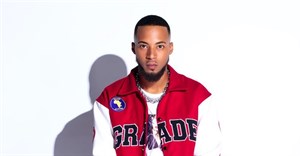Trending
#YouthMonth: Understanding youth culture for better marketing results

How can brands become culturable in today’s world of digitally saturated markets, leveraging culture, especially youth culture, for marketing purposes whilst maintaining its true essence?
Culture is part and parcel of society. Almost everything that people do in society is somewhat related to their culture. Brands exist in a social context where people interact with them.
Culture eats strategy for breakfast
Assuming that you have not been living under a rock, probably you have heard about the phrases culture vulture and culture appropriation.
Culture vulture means using the culture without re-building, opening doors for the custodians or using the culture for commercial reasons without giving credit where it is due. Culture appropriation is the misrepresentation and exploitation of the culture
For these reasons, brands need to be culturally conscious and be involved in the culture. Oftentimes youth culture and culture influence marketing in different ways. Hence the saying that “culture eats strategy for breakfast.’’
Youth culture is a movement
But sometimes, brands and marketers don’t comprehend the impact of culture in marketing exactly because many do not really understand the nuances of youth culture and culture in general.
As a result, it is of paramount importance that brands become active members of the youth culture and culture generally.
Often when tapping into the youth culture, brands produce work of low standard and miss the mark.
Incorporating youth culture into your marketing efforts should not be about riding the bandwagon or the latest trends.
It should be about delving deep, being knowledgeable about and understanding it. Having granular knowledge about youth culture helps with brand storytelling.
“It’s often not easy, but marketing leaders and brand strategists must strive to understand these important cultural shifts—and what’s driving them—to respond with intelligence and empathy. The sharpest brands reflect and refract these changes, enhancing these new directions with storytelling that shift perceptions, advances culture and paves the way to a kinder world, the type of place where we want to live,’’ says a Meta insight article report.
Youth culture is a movement, yet it's organic. What is relevant at this particular moment may be irrelevant next month. So, brands and marketers must be part and parcel of it; always being on the ground.
This will assist with a brand's marketing efforts, and alleviate appropriation of the culture.
Be authentic
You don't have to mimic each and everything the youth does, but you need to complement and extend the movement by being authentic.
To be authentic goes back to knowing and understanding the target market/audience.
This will make your marketing effort believable and thus resonate with them at a personal level. The emotional connection is also important in marketing regardless of the media channels.
For big brands that have entrenched themselves in knowing and understanding youth culture, they have made efforts to hire specialists in youth culture and culture overall.





















